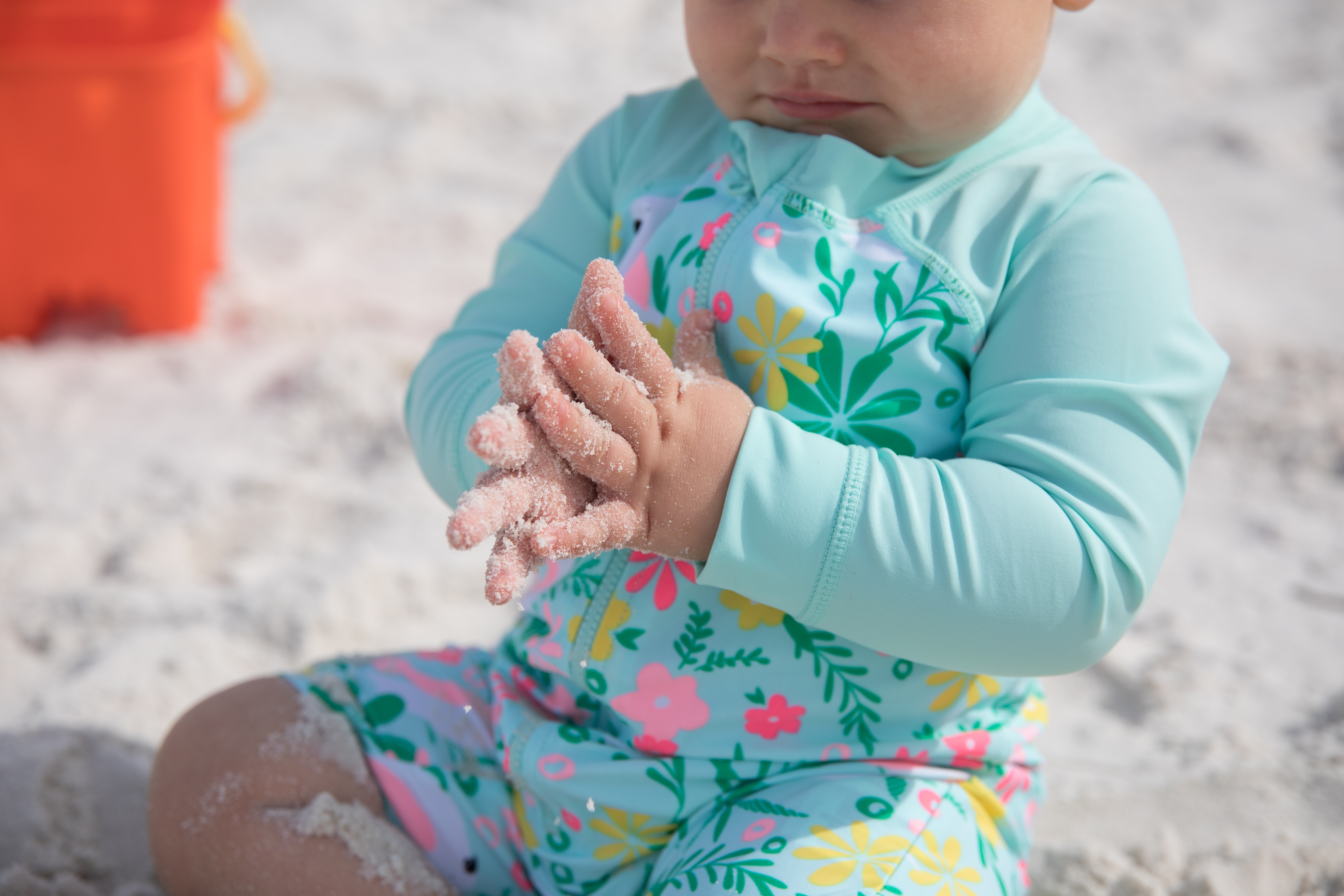Sun Safety Guide: Protecting Your Baby and Young Children from Harmful UV Rays

TLDR
Learn essential strategies to protect your little ones from harmful UV rays, with age-specific guidelines and practical tips for parents. Just one blistering sunburn during childhood can nearly double their risk of developing melanoma later in life.
Introduction
Protecting your baby and young children from harmful UV rays is crucial for their health and future well-being. With skin cancer being the most common cancer in the United States, and young skin being particularly vulnerable to UV damage, understanding proper sun protection is essential for every parent.
Key Points Overview
- Age-specific sun protection guidelines for infants, babies, and toddlers
- Understanding SPF, UVA, and UVB protection
- Practical tips for applying sunscreen and choosing protective clothing
- Vitamin D considerations and safe sun exposure
Why Sun Protection Matters
Skin cancer is the most common cancer in the United States, and young skin is particularly vulnerable to UV damage. Children's skin is thinner, produces less melanin (the protective pigment), and is more susceptible to UV radiation damage. The effects of sun exposure build up over time, making early protection essential.
"Just one blistering sunburn during childhood can nearly double a person's chance of developing melanoma later in life."
- American Academy of Dermatology Association, Skin Cancer Foundation
Source: https://www.aad.org/public/diseases/skin-cancern/prevent/sun-babies
Age-Specific Sun Protection Guidelines
Different age groups require different approaches to sun protection. Here's what you need to know for each stage:
"While children under 6 months old should never be exposed to the sun, once they reach 6 months, they should wear sunglasses outside."
- UCSF Benioff Children's Hospitals, Medical Specialists
Source: https://www.ucsfbenioffchildrens.org/education/sun-safety-for-children-and-babies
Understanding Sun Protection Products
Not all sunscreens are created equal. Understanding the different types of protection available is crucial for making informed choices.
"Look for sunscreens that have physical blockers rather than chemical blockers because they're better for sensitive skin."
- Dr. Megha Tollefson, Mayo Clinic Pediatric Dermatologist
Source: https://newsnetwork.mayoclinic.org/discussion/draft-5-3-mayo-clinic-minute-tips-for-protecting-babies-from-harmful-uv-rays/
Practical Applications
- Apply sunscreen 30 minutes before going outside
- Use a golf ball-sized amount of sunscreen for full body coverage
- Reapply sunscreen every two hours or after swimming/sweating
- Seek shade between 10 AM and 4 PM
- Use UPF-rated clothing (30+ recommended)
- Make sun protection a regular part of your routine
Common Questions and Answers
Q: When can I start using sunscreen on my baby?
A: Sunscreen can be used on babies 6 months and older. For younger infants, physical protection (clothing, shade) is the primary defense.
Q: What SPF should I use for my child?
A: Choose a broad-spectrum sunscreen with SPF 30 or higher. Higher SPF doesn't mean proportionally more protection, but SPF 30+ provides good coverage.
Q: How often should I reapply sunscreen?
A: Reapply sunscreen every two hours or immediately after swimming or sweating. Remember that water-resistant doesn't mean waterproof.
Key Takeaways
- Start sun protection from birth with physical barriers
- Use age-appropriate protection methods
- Make sun safety a family priority
- Remember that sun protection is a year-round concern
- Balance sun protection with vitamin D needs
Additional Resources
- UCSF Benioff Children's Hospitals Sun Safety Guide - Comprehensive guide from medical specialists on sun protection for children.
- Mayo Clinic Pediatric Dermatology Tips - Expert advice on protecting babies from harmful UV rays.
- American Academy of Dermatology Resources - Evidence-based guidelines for sun protection in children.
Call to Action
Share this guide with other parents and caregivers to help protect more children from harmful UV exposure. Subscribe to our newsletter for more parenting tips and health advice.